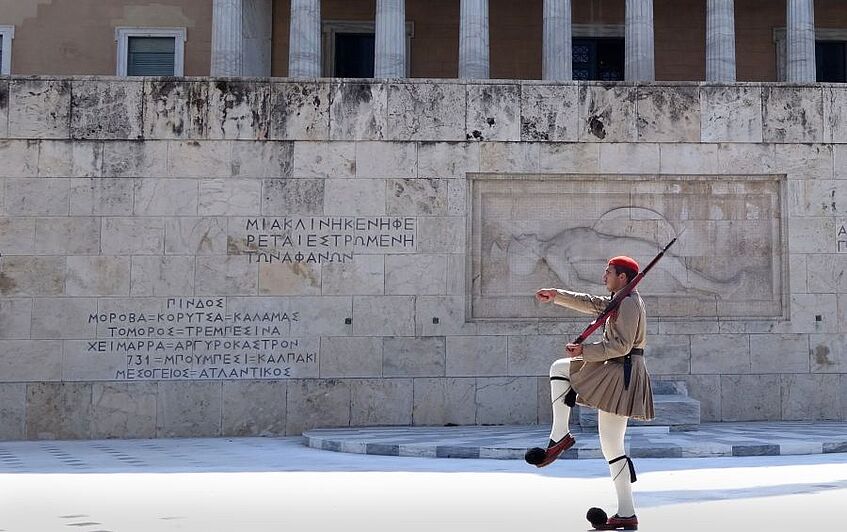Byzantine Studies and Modern Greek Studies (Master)

The master’s programme in Byzantine Studies and Modern Greek Studies aims at equipping students with special methods and knowledge required for independent academic research on issues relating to Greek culture, from late antiquity to the present (history, language, literature, art). The master's programme equips students with the necessary competences for an analytical examination of complex problems in all areas of the disciplines, allowing them to broaden the competences acquired during previous bachelor’s studies. On the one hand, the master’s programme in Byzantine Studies and Modern Greek Studies allows students to gain an extensive overview of both pillars of the discipline. On the other hand, it enables students to specialise either in Byzantine Studies or in Modern Greek Studies, which is necessary not only from an academic point of view, but also for a future career.
Master of Arts
Degree Programme Code: 066 869
4 semesters / 120 ECTS credits
Language: German
NO entrance examination
Facts & Figures
- Students: n.a.
- Graduates in the last academic year: n.a.
- Number of semesters needed for graduation (median): n.a.
Data updated on: 03.12.2024
Attention
Instruction Language German
Please note that the instruction language of this programme is German. To start the degree programme, you need to hold a certificate of German proficiency on C1 level.
Admission Procedure
Information abouth the admission procedure
Information on Previous Studies:
In any case eligible degree programmes at the University of Vienna:
Study Programme
The master's programme Byzantine and Modern Greek Studies starts with a compulsory module Common Principles. Furthermore it consists of an alternative group of compulsory modules in which the students have to choose a focus (either Byzantine Studies or Modern Greek Studies). This module consists of alternative compulsory modules where students can either focus on foreign languages relevant to the field or select further courses according to interest. In addition, students have to write a master's thesis and pass a master's examination.
Five Concepts
which you will deal with during your studies:
- Sigillography
- Reception history
- Diplomatics
- Palaeography
- Modern Greek
... and many more.
Overview of the programme structure & topics
Here you find the current offer of courses for this programme to gain better insight into the topics and structure. For more information please click on the respective level.
After Graduation
The research-oriented degree programme offers a sound academic preparation for future employment. On the one hand, graduates are qualified for academic work in the area of Byzantine studies and modern Greek studies. On the other hand, the degree programme opens up possibilities for employment in all fields relating to cultural mediation, or occupational fields that require specific knowledge of the respective countries, regions and languages (Greece, the Eastern Mediterranean region, Greek as a special language and as one of the languages spoken in the EU).
Graduates' Perspective on the Degree Programme
Graduates ...
- say that this degree programme receives the grade: 1.4 (excellent)
- rate the level of difficulty as: 3.6 (high)
→ These results are based on feedback from 5 graduates.
*You can find further assessments of the degree programme from its graduates’ perspective in the graduate survey of the master's programme in Byzantine Studies and Modern Greek Studies (in German).
Graduates ...
- find employment within 2 months after graduation on average.
- earn an average of € 2,719 (women) and € 2,702 (men) gross per month within three years after graduation.
- work full time at a percentage of 68% (women) and 62% (men) within three years after graduation.
*You can find further information on career entry and career paths in the tracking of graduates "Arts and Humanities".
